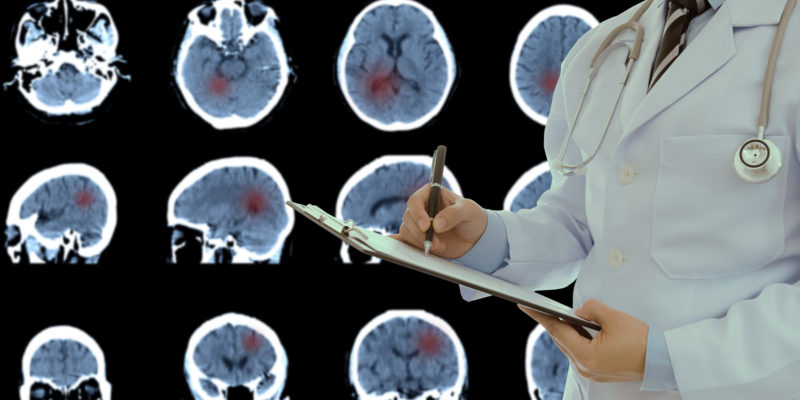There could be a reduction in the number of people dying from brain cancer in the future, after a new blood test has been introduced that can detect tumours with a very high accuracy rate.
Scientists at the University of Strathclyde in Glasgow have been busy working on a study to find a better, more efficient way of finding brain tumours.
Dr Matthew J Baker, a reader in the Department of Pure and Applied Chemistry at the university, led the research, which has now appeared in the journal Nature Communications.
The study has been so important, as diagnosing brain tumours can be very challenging. Study co-author Dr Paul Brennan, who is a senior clinical lecturer and consultant neurosurgeon at the university, told Medical News Today: “The problem is that symptoms of brain tumour are quite nonspecific, such as headache, or memory problems. It can be difficult for doctors to tell which people are most likely to have a brain tumour.”
In addition the ambiguous symptoms, there is a deficit of detection tests that doctors can use to accurately diagnose brain tumours in those at-risk patients.
Therefore, this new test could improve detection rates significantly. Dr Baker stated: “This is the first publication of data from our clinical feasibility study, and it is the first demonstration that our blood test works in the clinic.”
The assessment is so effective, it correctly found signs of brain cancer 87 per cent of the time during the research process.
According to the report, the test works by using attenuated total reflection Fourier transform infrared (ATR-FTIR) to establish a ‘bio-signature’ of blood samples. This enables doctors to analyse the blood in a “simple, label-free, non-invasive, non-destructive way”.
Following the ATR-FTIR technique, artificial intelligence technology is used to scan for cancer signs.
Dr Brennan said the new assessment, which achieved 83.3 per cent sensitivity and 87 per cent specificity, will “help doctors quickly identify which [people] with these nonspecific symptoms should be prioritised for urgent brain imaging”.
By doing this, those who need treatment urgently will be able to receive quicker diagnoses, and therefore, be able to get access to care much more quickly.
This exciting new development could have a big impact in the medical and pharmaceutical world, as nearly 5,000 people in the UK die as a result of a brain tumour every year. According to the Brain Tumour Charity, it is the biggest cause of death for children and adults under the age of 40 compared with any other cancer.
Indeed, 32 people are diagnosed with a primary brain tumour every day, amounting to 11,700 over an average year. Even more suffer from brain cancer as a result of a secondary tumour, meaning it has spread to the brain from somewhere else in the body.
However, it can be difficult to diagnose the cancer, as the symptoms can be vague and linked to many other conditions. The NHS advises patients to look out for persistent headaches, seizures, nausea, vomiting, drowsiness, memory problems, changes in personality, paralysis on one side of the body, vision or speech problems, or progressive weakness.
To find out more about co-packaging companies for pharmaceutical products, take a look here.

